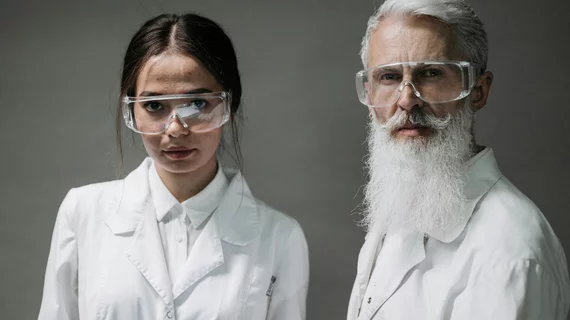Industry Watcher’s Digest
Buzzworthy developments of the past few days.
- Can simply working with healthcare AI make clinicians better at their jobs? New research seems to suggest so. A pediatric nurse practitioner who oversees development of an AI model at her hospital cut her referrals of patients for unneeded invasive tests from 80% to 58%. The researchers who studied the phenomenon have dubbed it “induced belief revision.” They hypothesize that “repeated exposures to model predictors and their corresponding labels [may lead] to a change in clinical decision-making based on a learned intuition of the model’s behavior.” The study is published in NEJM AI, and News Medical has a tidy summary.
- The CEOs of OpenAI and Microsoft sat together to talk about AI this week. The event that seated them side by side was the 54th annual meeting of the World Economic Forum in Davos, Switzerland. OpenAI’s Sam Altman: “Last year, the world had a two-week freakout with GPT4. And now people are like, ‘Why is [ChatGPT4] so slow?’” Microsoft’s Satya Nadella: “I don’t think the world will put up any more with any of us coming up with something that has not thought through safety, trust and equity. These are big issues for everyone in the world.” Extensive coverage of AI chatter at Davos 2024 linked here.
- Meanwhile, back in the U.S.: “If we scale up computer-aided drug design up by a billion times, we could simulate biology.” That’s from Nvidia’s founder and CEO, Jensen Huang, who shared the vision last week at the J.P. Morgan Healthcare Conference in San Francisco. Nvidia’s own coverage here.
- The American Medical Association has moved medical AI to its back burner. The big doctors’ group still sees AI’s riskiness as a top issue in its legislative docket. But for now the top concern is lobbying Congress to pull back the 3.4% cut in Medicare reimbursement that kicked in on New Year’s Day, AMA President Jesse Ehrenfeld tells Politico. Bias-based AI danger remains a pressing concern, but it’s “mainly theoretical,” the outlet reports, “and healthcare interests consider it a lower priority than pocketbook issues like how much Medicare pays.”
- A large language AI chatbot cooked up in Google’s DeepMind shop has equaled or bettered primary-care physicians on two key scores. We’re talking engaging patients and diagnosing their self-described conditions. The patients were trained actors, but the doctors were real. The bot, dubbed AMIE for Articulate Medical Intelligence Reporter, heard the patients out via text messages. Its diagnoses proved impressively accurate. And the patient actors said “Dr. Amie” came across as polite, empathetic, honest, caring and committed. Pre-peer review study here, coverage by Pymnts here.
- Introducing an AI-friendly database built on records of around 60,000 patients who had almost 84,000 surgeries. Compiled at UCLA and UC-Irvine, the dataset is designed to help AI researchers “develop new algorithms and predictive tools to improve the care of surgical patients globally.” Announcement here.
- A major medical journal has posted a collection of open-access papers whose common denominator is digital technology. The Journal of the American Heart Association put up links Jan. 16, suggesting the fresh content reflects worthy efforts to “validate or create scalable, engaging, evidence-based health-tech tools for clinicians and patients with the potential to improve health for people across the socioeconomic spectrum.” Full package here.
- This just in from the animal healthcare AI beat. Researchers at Virginia Tech are using AI to decipher bovine communications as expressed through mooing, chewing and burping. The investigators, who work in the animal and dairy data sciences—yes, there are such disciplines—use sounds captured in pastures. From the recordings, machine learning helps analyze and catalog “thousands of points of acoustic data” to uncover heretofore hidden signs of stress, sickness, udder aches and what have you. More here.
- From AIin.Healthcare’s news partners:
- Health Imaging: ChatGPT IDs incidental findings on CT images
- Cardiovascular Business: AI model targets inflammation, helping cardiologists find 'invisible' heart patients
- Health Imaging: Digital biomarker tool for rapidly identifying lung fibrosis cleared by FDA

